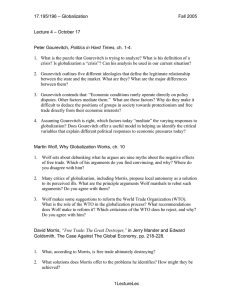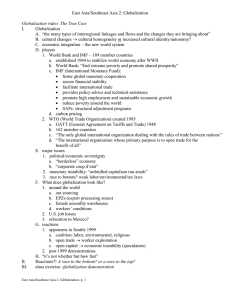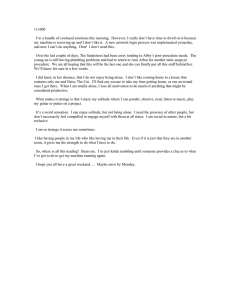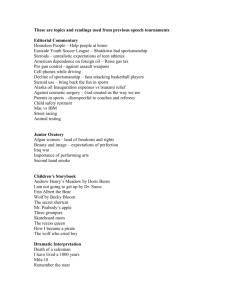17.195/196 – Globalization Fall 2005 Lecture 5
advertisement
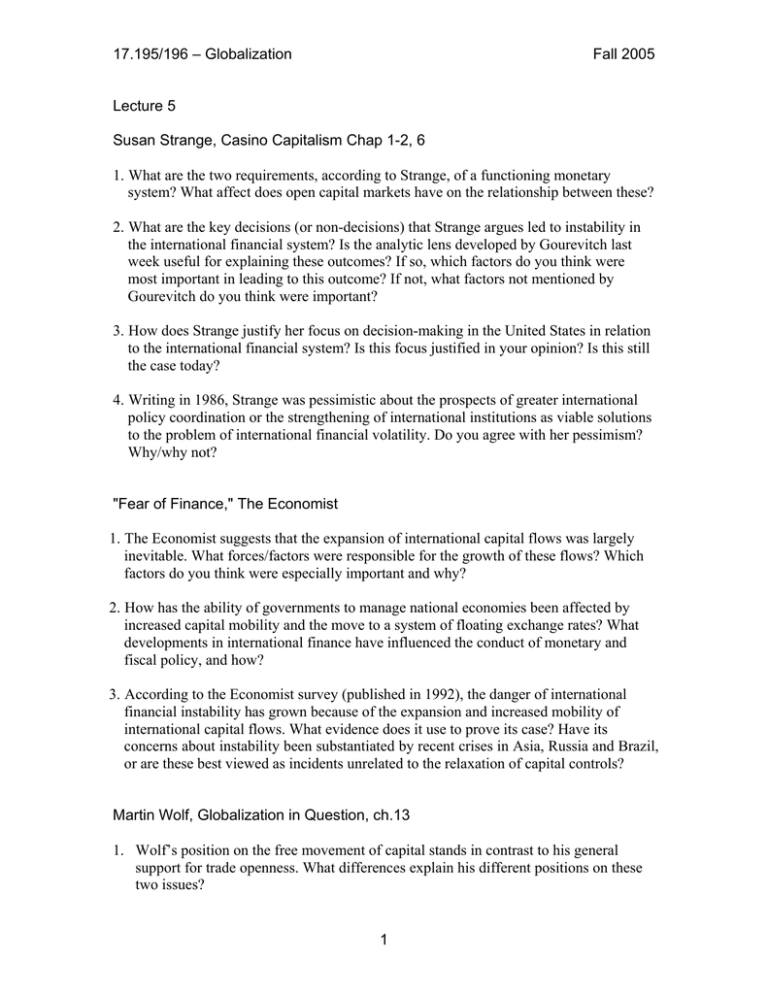
17.195/196 – Globalization Fall 2005 Lecture 5 Susan Strange, Casino Capitalism Chap 1-2, 6 1. What are the two requirements, according to Strange, of a functioning monetary system? What affect does open capital markets have on the relationship between these? 2. What are the key decisions (or non-decisions) that Strange argues led to instability in the international financial system? Is the analytic lens developed by Gourevitch last week useful for explaining these outcomes? If so, which factors do you think were most important in leading to this outcome? If not, what factors not mentioned by Gourevitch do you think were important? 3. How does Strange justify her focus on decision-making in the United States in relation to the international financial system? Is this focus justified in your opinion? Is this still the case today? 4. Writing in 1986, Strange was pessimistic about the prospects of greater international policy coordination or the strengthening of international institutions as viable solutions to the problem of international financial volatility. Do you agree with her pessimism? Why/why not? "Fear of Finance," The Economist 1. The Economist suggests that the expansion of international capital flows was largely inevitable. What forces/factors were responsible for the growth of these flows? Which factors do you think were especially important and why? 2. How has the ability of governments to manage national economies been affected by increased capital mobility and the move to a system of floating exchange rates? What developments in international finance have influenced the conduct of monetary and fiscal policy, and how? 3. According to the Economist survey (published in 1992), the danger of international financial instability has grown because of the expansion and increased mobility of international capital flows. What evidence does it use to prove its case? Have its concerns about instability been substantiated by recent crises in Asia, Russia and Brazil, or are these best viewed as incidents unrelated to the relaxation of capital controls? Martin Wolf, Globalization in Question, ch.13 1. Wolf’s position on the free movement of capital stands in contrast to his general support for trade openness. What differences explain his different positions on these two issues? 1 17.195/196 – Globalization Fall 2005 2. What benefits does Wolf argue nevertheless accrue from open capital markets? 3. The International Monetary Fund was heavily criticized in the wake of the Asian Financial Crisis of 1997. What were the main charges against it? Do you agree with Wolf’s assessment of these criticisms? 4. Compare the recommendations made by Strange and Wolf concerning how best to regulate international financial flows. Whose arguments do you have greater sympathy for? Why? Jeffry Frieden, “Invested Interests: The Politics of National Economic Policies in a World of Global Finance,” International Organization, vol. 45 (1991), pp. 425-51. 1. What are the three types of capital flows identified by Frieden? How do they differ from one another? 2. Frieden asserts that capital flows affect different types of government policy in different ways. Which set of government policies are less affected by the free flow of capital? Which are more affected? Why? 3. What is the “specific-factors” model? What does it predict about the preferences of domestic groups towards policy? What do you think might be missing from this model? 2

